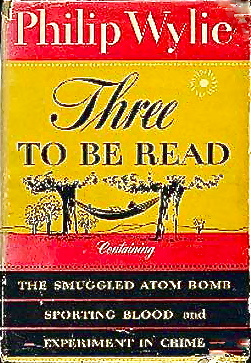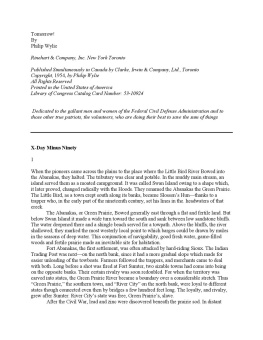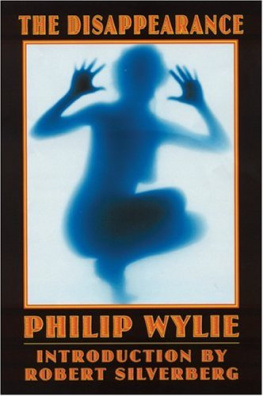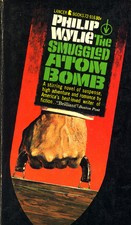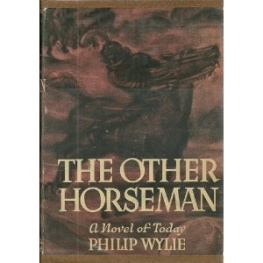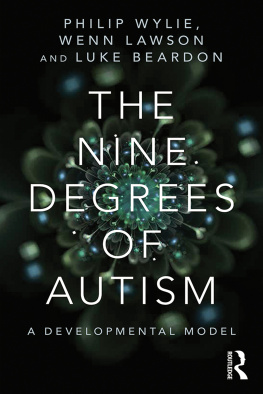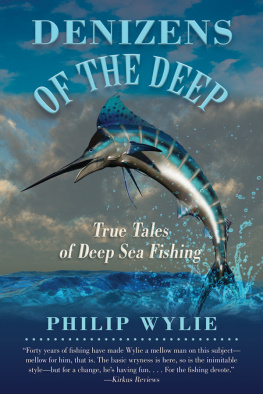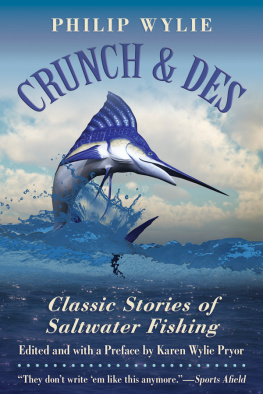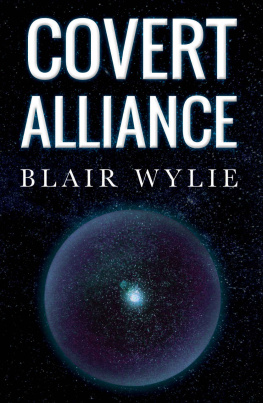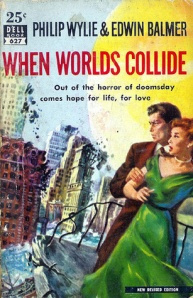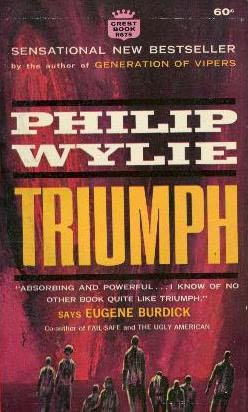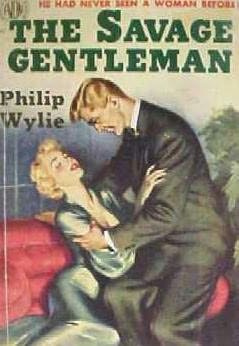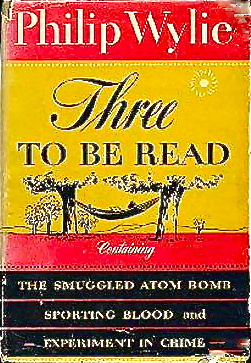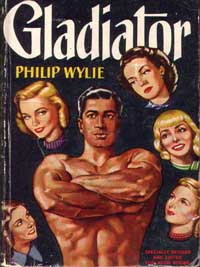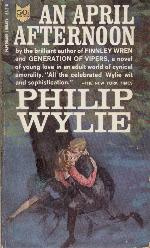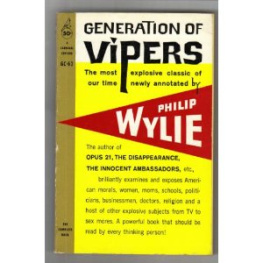Experiment in CrimeBy Philip Wylie
Chapter I
A RINGING denunciation of crime was responsible for the entrance of Professor Martin Luther Burke into the demimonde. More accurately, the challenge of a lovely young lady precipitated the event. And the weather had something to do with it.
Men's lives are often--and fittingly--compared with the courses of rivers: one life is a noisy torrent, another is a lazy meander, and a third is a mere tributary. Some rivers flow inconspicuously for great distances only to encounter a geological fault that turns them abruptly into crashing falls and bellowing cataracts. So it was with Professor Burke.
For his first six years he had merely grown, an undersized and unnoteworthy lad in a New England village--a mere rill. For seventeen years, he had thereafter studied--a small stream growing with the volume of knowledge. He had been an instructor after that, teaching sociology and psychology. Full professorship was accorded him in his thirtieth year, after a wartime interlude in which his forte had been disregarded by the Army and his knowledge of languages had been exploited. He had censored endless thousands of letters written by homesick G.I.s in other tongues than English. His collected lectures had been published. Now, as a professor of socio-psychology at the University of Miami, his course in life, like the courses he taught, seemed certain to flow serenely--a river without dash, a river that neither floods nor dries up, that scarcely changes even when it freezes.
The trouble was the weather, to start with.
It was an unsuitable day for scholarship. A warm haze hung over the land and sunlight filtered through it, lying on the lush vegetation like melted butter. Birds sang alluringly. A clump of bushes, planted directly under the windows by a thoughtless landscape architect, sent into the lecture room an unsettling perfume. It was bad enough for the young lady students to wear commercial fragrances with names like Tumult and Triple-Dare; that nature should conspire in the fashion was all but intolerable.
Professor Burke paused in his lecture on Crime and Civic Corruption. "Greater Miami," he said, "unfortunately furnishes a cross section of the socio-psychological ailments under discussion." As usual, the mention of their own region instilled new interest among the students. "In this resort area the demand for what is called diversion reaches a nadir. The gambler, the bookmaker, the racketeer and the vice overlord line the pockets of the politician for illegal protection. I refer you here to Studies in AntisocialOrganisms by Waite and Treachness, which contains a masterly chapter on South Florida...."
As he dissertated upon Waite and Treachness, his own eye wandered to the window and the green world beyond. MacFalkland was just passing--on a bicycle--golf bag jingling on his back and his hirsute chest showing through the open triangle of a rather loud sports shirt. MacFalkland had no four o'clock class. It was one bit of evidence--a chip in a large mosaic-which made Professor Burke sure that not he, but MacFalkland, was destined to be made Head of the Socio-Psychology Department, when there were funds enough for its establishment. Professor Burke found in a corner of his brain the unwelcome reflection that MacFalkland looked as if he still had several decades of teaching in him. He shook off the mordant idea.
"The criminal," he heard his voice assert, "is an intellectual defective. His crimes are evidence of the fact of his psychological inferiority. You might note down the phrase." They noted it down while he glanced at his own typed manuscript. Vacation would be along soon, and he, too, could wing golf balls into the sunshine for three weeks.
He wished he had MacFalkland's shoulders. "The man guilty of corrupting the body politic is, essentially, lacking in imagination and logic. He saws off the limb which sustains him. Crime is identical with the lack of intelligence."
He glanced at his watch. He had one minute of lecture left--and twelve minutes of class time. He wound up his ringing denunciation--and banished hope, among those who imagined they might be dismissed early, by an old ruse:
"Any questions, ladies and gentlemen?"
A hand went up. The hand of Miss Marigold Macey. In spite of her campus-belle appearance, in spite of the frame of curls which seemed to escape her upswept brown locks by accident, and in spite of the further fact of her good marks, Miss Macey had a way of asking rather sharp questions.
"Yes, Miss Macey?"
She stood up politely. Standing, even in blouse, skirt, and low-heeled shoes, she was still unstudentlike. A little older than the other girls, for one thing. Her education had been interrupted by work having to do with the Red Cross. Several of his male students were as old as she, and even older--for a similar reason: the War.
"I was wondering, Professor Burke, if you were acquainted with any gamblers, racketeers, vice overlords, and so on?" Her voice had a New England accent-although he understood her parents had lived in Florida for more than a decade.
"I fail to see the relevance of the question," he said firmly.
She picked up her notebook and flipped pages. She sounded apologetic. "Last October--in your lecture on the Techniques of the Socio-Psychologist, you said this: 'The true student accepts no theory per se and takes no hearsay evidence; he tests every assertion against his own experience in society; he investigates for himself.'" She closed the notebook. "That's what you said. I took it down in shorthand. Naturally, I wondered how much testing and investigating you had done-to lecture about crime."
Professor Burke flushed slightly. His class was amused. "At the time," he said, "I was discussing public health, sanitation, slums, and so on. I hardly feel that such advice may be construed as urging association with criminals."
"I see," the girl said. She did not sit down.
"Was there another question?"
She nodded. "In November," she said, and he bridled a little at her accuracies,
"you advised us to read a book called Social Non-Norms, by Ledbetter, Shrieben and Morissey. I read it--all eight hundred pages. And they say a criminal is sometimes a person of superior intellectual ability who cannot stand the restrictions imposed upon everybody for the sake of mediocrities. They say that brains may thus lead to crime-
rather than stupidity...."
Professor Burke made a mental note never again to recommend any book which he, himself had found too dull, ponderous and turgid for thorough perusal. He had skipped that part, evidently. But he did not like mutiny in his classes. He cleared his throat. "In my opinion, Ledbetter, Shrieben and Morissey erred in their appraisal of that particular subject. They worked carelessly, from inadequate material and false premises-
"
"Shrieben," Miss Macy interrupted, "spent two years in the Capone organization in Chicago...."
He had forgotten that, too. "A romantic," he said, "rather than a scientist. Shrieben mistook cunning for true intelligence. Every holder of an ordinary degree of Bachelor of Arts is the mental superior of any criminal."
Another hand went up--the hand of Wally Stratton, formerly of the Eighth Air Force and currently of the Football Squad. Obviously, he intended to go to the defense of the physically nubile but mentally thorny Miss Macey.
"Mr. Stratton?"
"Wouldn't it be an interesting idea to get some gangster in here to debate the matter?"
Professor Burke saw his opening. "Any gambler, or gangster, or other such person among your associates would be welcome here, Mr. Stratton." The class laughed.
Mr. Stratton sat down rather sheepishly. Professor Burke made his usual pre-vacation speech--wishing all of them a pleasant trip home, a safe return, and an interlude of Merry Christmas combined with Happy New Year. He repeated that he hoped none of them would use his course as an excuse for turning to crime: the faculty would disapprove, he ventured.
Next page 
